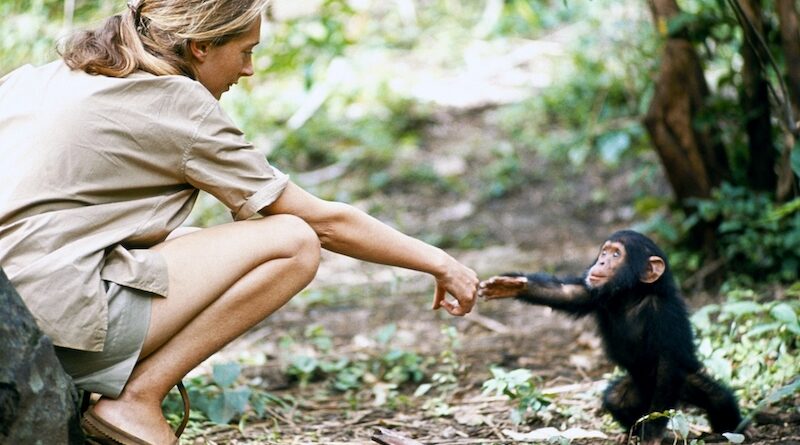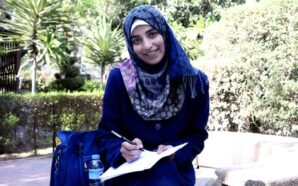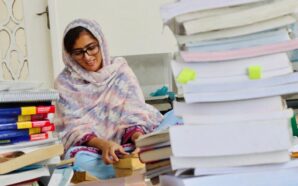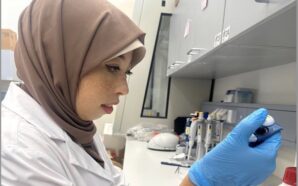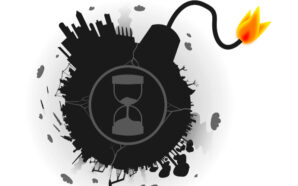You have inspired millions of people all over the world. What does it mean to be fully human and to have meaning in our lives in this day and age of turmoil and strife?
I think people need to think not about the whole picture. They just have to think about what ‘I can do here where I live’. And choose something they care about whether its planting trees and do that and then inspire others to help. Gradually, it’s a spiral of hope because then more people get inspired and more people help. Then you know other people are doing it all around the world.
We say action is fueled by hope. When one sees the world around you engulfed in trauma, vitriol, death and destruction, how does one wean oneself from the subsequent clime of despair?
It’s exactly what I said before. Don’t think about the whole world. Just do something where you are, something you care about and something you can actually do.
What are some of the biggest challenges when it comes to humanity and our natural world? And how do we address them?
Well, I think climate change and loss of biodiversity and that of course is cause by burning fossil fuel, cutting down forests, polluting the ocean, destroying the soil with chemical fertilizers and pesticides and herbicides. You know the way we behave destroying the planet.
The 21st century epitomizes what Mathew Arnold had poetically said centuries ago, with perhaps different connotations, when he wrote ‘In Harmony with Nature’. He said ‘Man must begin, know this, where nature ends, nature and man can never be fast friends’. Looking at what man has done – climate change, loss of biodiversity, environmental impact – How do you react to Arnold’s vision. Looking at the world we live in – should we despair or perhaps find hope?
Firstly, I think he was absolutely wrong and the answer is we must live in harmony with nature because we depend on it for food, water, clothing – everything. We are a part of it. We are part of the natural world and not separate from it. Although, people are feeling more and more distance, doing everything virtually instead of looking at the beauty of the trees, the sky and the flowers. Instead they are looking at things like this (pointing at the phone recording the interview). So if we can’t learn to live in harmony with nature, we are doomed.
How do we make people see the interdependence of humanity and the world we live in, the ecosystem?
I think people don’t see it. They feel humanity can live separate from nature. And sometimes it’s not their fault, they may be living in a city, they don’t get a good education. But when people who get a good education still feel divorced. Then they are being foolish because a good education teaches you, or rather should, that we are part of the natural world.
Coming to education and especially in context of the Global South and regions like South Asia – Pakistan, India, Bangladesh etc. – with water scarcity imminent…
And now they are covered in floods…
Exactly…
And also climate change…
True, and with the dire state of affairs, how do we create a sense of ownership in people?
We just have to do within our own little sphere what we can to slow down climate change, slow down the loss of biodiversity. And then educate young people who need to be taught about that from a very early age. Demonstrations will hopefully get them into nature. Explain to them that it never used to rain this time of the year. We have made that happen because we have interfered with the normal biodiversity mix, burn fossil fuel and cut down trees. And so it is our fault for what is happening.
We live in a world built on the pillars of commodification and consumerism. How do we make our children see what havoc consumerism is wreaking?
Well first of all, you have to inspirate it somehow. I also think it depends on the age of the child. You show them like what they did here in the UAE with the Expo 2020. They showed how much water is being used in various things. They used some very good examples of what we are doing to the planet. And when you say everyone is a consumer, (it is ironic that) the larger part of the world doesn’t have enough. So we over consume. There are two things we have to work on very hard. One is lower the standard of living and try not to have too much more than you actually need. Although, it is difficult for some people because they are born into a different world.
Then we have to alleviate poverty. At the same time, we cannot ignore the fact that the human population is growing so there is eight billion of us right now and already natural resources, which are often finite, are being destroyed than nature can replenish. So what is going to happen in 2050 when it’s estimated to be 10 billion.
If we carry on with business as usual, we are doomed. We need a new mindset that doesn’t equate success with money but with having a happy life. And to be happy, you don’t need all this consumerism. You just need enough to feed yourself and your family, to spend time with your family, and nature. People should think about that. Quite honestly, when people go beyond that and want more and more and more, they get more and more stressed. They are going towards this rat race world and it doesn’t do them any good. So we just have to think about it and also talk about it.
I was lucky in a way growing up in World War II. Everything was rationed and we took nothing for granted. We had coupons for clothes and food, for everything. We didn’t take life for granted. But children today, it’s not their fault and they live in absolute societies. They expect food on the table, they expect water to come out of the tap, they expect to turn on the switch and ‘lo and behold’ electric light appears. So it’s not their fault.
Certainly in Roots and Shoots (a program of the Jane Goodall Institute, is a global movement of youth just like you who are empowered to use their voice and actions to make compassionate decisions, influencing and leading change in their communities), we try to get kids out in nature and we try to link them with children their age in different countries. So they learn more about the ways others live and that it’s not all the same.
Last question, any thoughts about going to countries like Pakistan with Roots and Shoots?
We are working on Pakistan and many others like Palestine. But you know we have to wait until the country gets inspired. I can’t say I want Roots and Shoots in Pakistan unless somebody there is keen to develop the vision (with us). We did have two groups and there were people from Pakistan. There should be a school or teacher with whom we can work.
Image credit: Flint and Dr Jane Photo Credit NatGeo, Hugo van Lawick
This interview has been lightly edited for clarity




